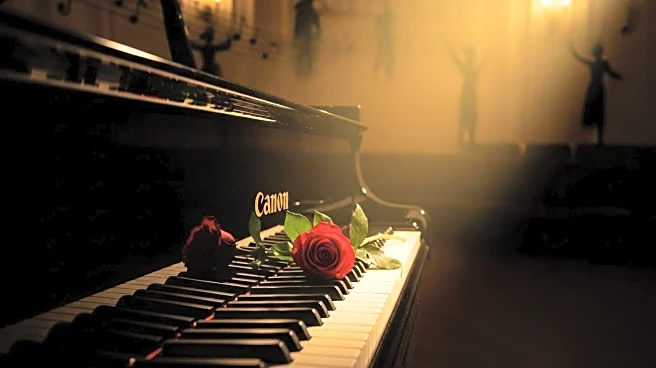What's Happening?
Rodion Shchedrin, a renowned Russian composer known for his ballets Anna Karenina and Carmen Suite, has died at the age of 92 in Germany. Shchedrin was a prominent figure in Soviet and Russian cultural scenes, married to the legendary ballerina Maya Plisetskaya. His work, which includes choral music, concertos, opera, and ballet, is celebrated for blending Russian folk influences with classical and avant-garde techniques. The Bolshoi Theatre, where he worked extensively, praised his creative legacy, marking his passing as a significant loss to the world of art.
Why It's Important?
Shchedrin's death marks the end of an era for Russian classical music and ballet, as he was a pivotal figure in shaping the cultural landscape during the Soviet era and beyond. His contributions to music and dance have influenced generations of artists and continue to be performed globally. The loss of such a figure underscores the importance of preserving and celebrating cultural heritage, as his works remain a testament to the rich artistic traditions of Russia.
What's Next?
The Bolshoi Theatre and other major cultural institutions may organize tributes and performances to honor Shchedrin's legacy. His works, particularly Anna Karenina, are likely to see renewed interest and performances worldwide. Additionally, discussions on his impact on Russian music and ballet may lead to retrospectives and scholarly analyses of his contributions to the arts.
Beyond the Headlines
Shchedrin's career, marked by both acclaim and controversy, reflects the complex relationship between art and politics in the Soviet era. His experiences with censorship and political scrutiny highlight the challenges faced by artists in maintaining creative freedom. This aspect of his legacy may prompt discussions on the role of art in political contexts and the resilience of artists in navigating such environments.









